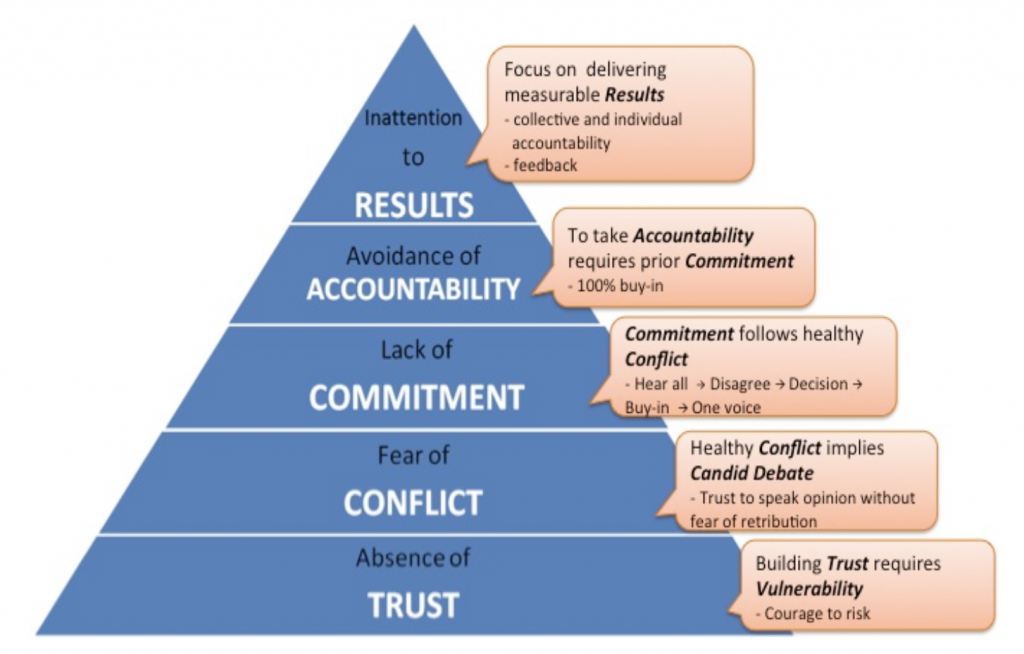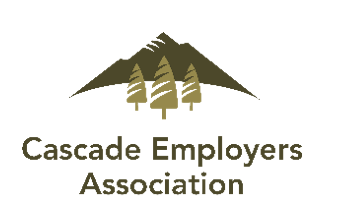Navigating Conflict in the Workplace
By Erin Bair
Conflict.
Just the word itself is enough to make many of us feel uncomfortable. It conjures images of yelling, hurt feelings and damaged relationships. However, not all conflict is bad. In fact some conflict is absolutely necessary for teams and organizations to thrive. In this article we’ll examine the difference between productive and unproductive conflict, why conflict is important, and how to make conflict more constructive and less scary in the workplace.

Many people associate the word “conflict” with the word “fight.” I think it can help to instead think of conflict as a disagreement. That’s all it is. Two or more people having different opinions about something that at least one person thinks is important. And thank goodness we do have different opinions and perspectives! Otherwise we’d have group think. We’d have an echo chamber. We’d have a team or an organization without innovation, simply because we’re afraid to disagree.
It’s not surprising then that two of the most well-known and respected models on teamwork emphasize the need for conflict. It’s the second rung of Patrick Lencioni’s hierarchy of team needs in his classic Five Dysfunctions of a Team. The Tuckman model of teamwork includes “storming” (a.k.a. conflict) as one of the four main stages of team development (along with forming, norming and performing.) Both models recognize that without conflict, there can be no true buy-in for any idea, project or change initiative. People may nod their head to be polite, but they will not invest the time and energy to see something succeed that they don’t believe in. The only way you can change someone’s mind is to talk about it, to talk about your disagreement.
That said, there is productive conflict and unproductive conflict, with the main difference being about whether disagreement is perceived as being respectfully communicated. I say perceived because no two people have identical standards for what constitutes “respectful conflict.” Maybe two people can agree that yelling is a no-no, but at what point does “raising your voice” become “yelling”? Further, our families of origin, our culture, and professional norms all impact us and shape our concept of respect differently.
In addition to our varying conflict preferences, our very bodies can turn productive conflict into unproductive conflict through our natural neurobiological response to stress. Once our stress response is triggered – and it is triggered very easily – we go into flight or fight mode. We bypass our brain’s prefrontal cortex, the most evolved part of our brain, and react from our limbic system. Essentially, our ability to filter what we say is diminished and we’re more likely to say something we’ll later regret.
To review, conflict is both difficult to navigate well and totally necessary. Despite the opportunities for misunderstanding and for stepping on toes, the total avoidance of conflict is not the answer. Instead, there are ways to make productive conflict a more common occurrence in the workplace. While Cascade offers a much more extensive examination in our trainings, such as Turning Conflict into Teachable Moments, here’s one idea to get you started:
Talk about conflict before it happens.
Whether at a group level, a team/departmental level, or one-on-one, it helps to talk about conflict before it happens. That way we can learn about conflict styles and preferences before things get heated. I suggest saying something like, “There are bound to be times when we disagree about something. I want to make sure that when we do I’m as respectful as possible so that we can have a really good conversation and come to a good decision. What are some of your preferences?”
Since the person may not have considered it before, I often suggest starting with your own preferences. For example, I may admit that I avoid conflict and it’s something I’m working on, or that I like to have processing time after I learn someone’s point of view rather than continue to hash it out in person. You can also consider using workplace behavioral assessments like ©The Predictive Index to better understand individual preferences and build self-awareness. Taking this action not only increases the odds of productive conflict taking place, it also builds relationships as individuals learn more about one another.
In short, conflict may never be something we look forward to or consider “fun.” That said, avoiding it is not the answer. Rather, being proactive and taking the time to explore what productive conflict is, and is not, with colleagues can go a long way in ensuring better team dynamics.

Erin Bair, Director, Training & Organization Development
Cascade Employers Association
training@cascadeemployers.com


Advertisement